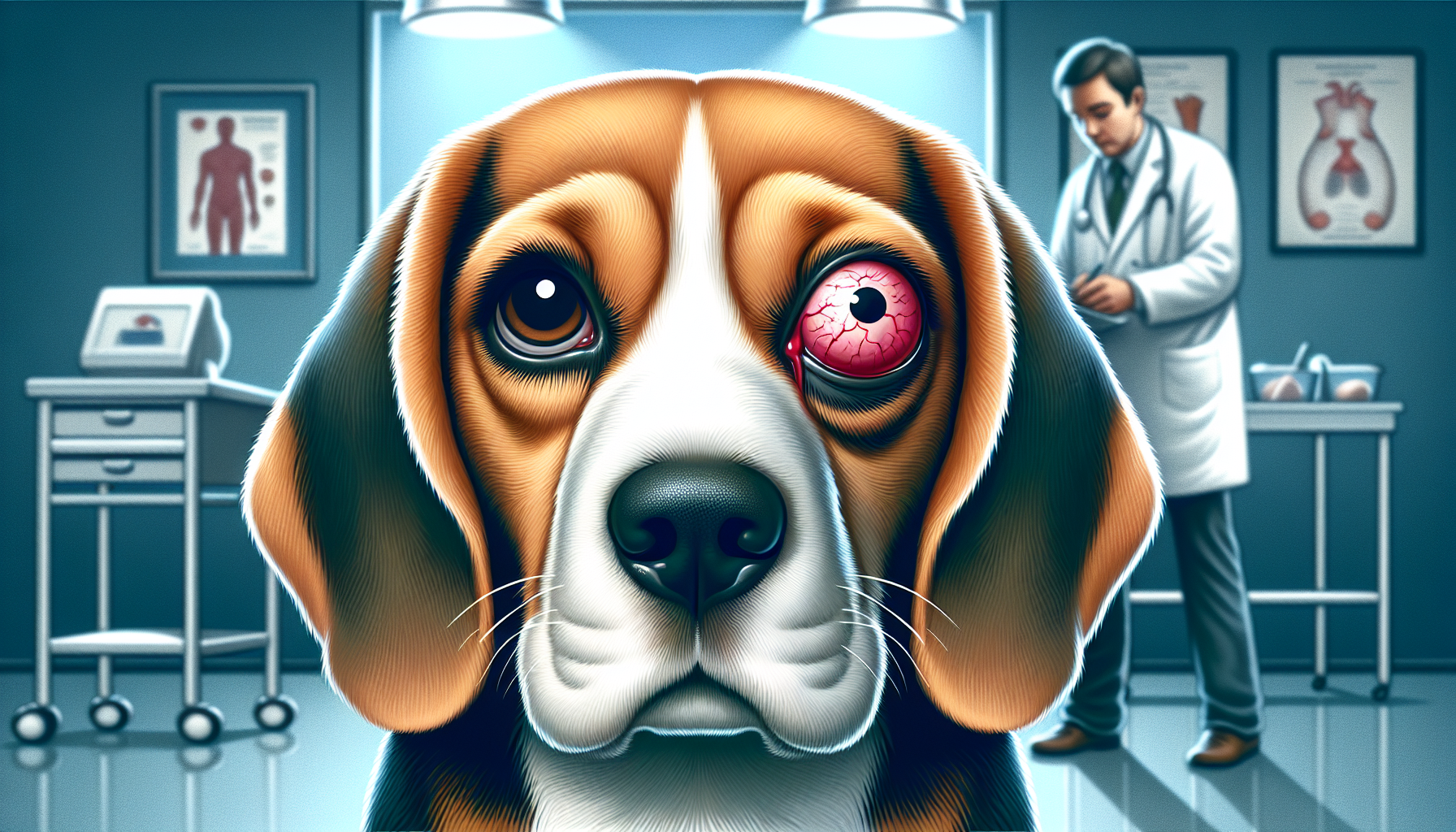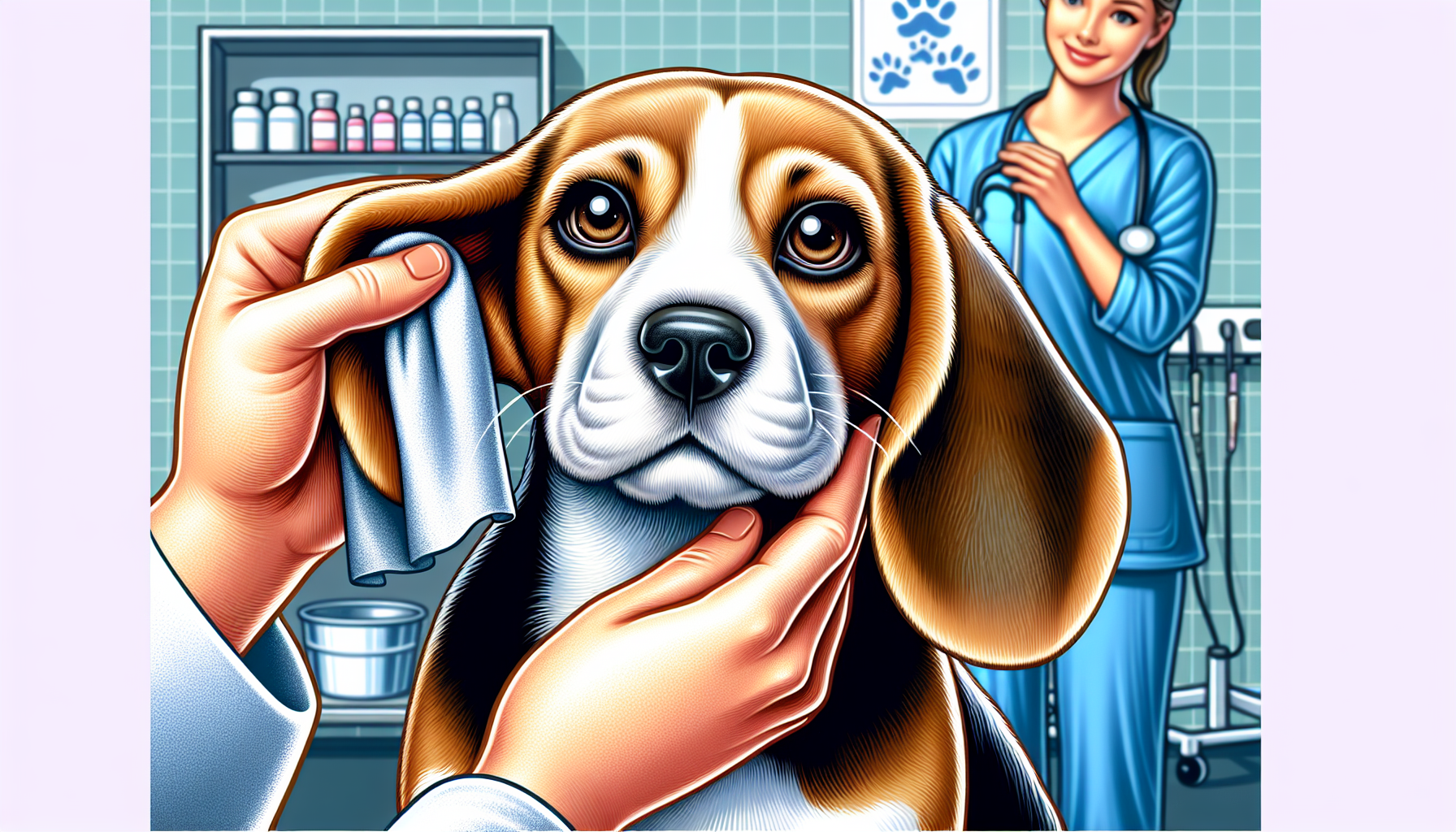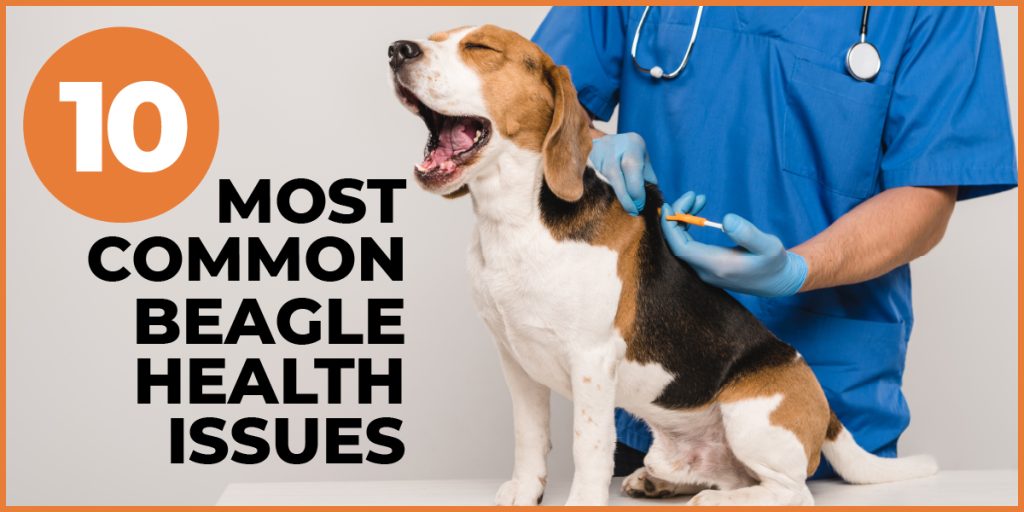As a Beagle owner, understanding the common beagle health issues that may affect your furry friend is not just important—it's essential. This guide covers the 10 most common health challenges that Beagles face. From identifying early symptoms to implementing effective prevention and care strategies, we equip you with the knowledge to ensure your Beagle remains vibrant and healthy. Let's dive in…
Key Takeaways
- Beagles are prone to several breed-specific health issues, including intervertebral disc disease, cherry eye, glaucoma, diabetes, ear infections, epilepsy, hip dysplasia, and hypothyroidism.
- Regular veterinarian check-ups, maintaining a balanced diet and weight, ensuring regular exercise, and keeping up with grooming and hygiene are key proactive measures to keep Beagles healthy.
- Recognizing symptoms early and seeking timely treatment for conditions like IVDD, eye problems, ear infections, seizures, hip dysplasia, and hypothyroidism is critical for Beagles’ health management.
Find out how to train your beagle to be the well-behaved pup you desire – Read Free Report
10 Most Common Health Concerns in Beagles
Beagle beagles are known for their playful demeanor and endearing personalities, but they also come with a predisposition to certain health issues that can impact their zest for life. As pet owners, it’s our duty to be vigilant and informed about these potential health concerns, especially when bringing a beagle puppy into our homes. Beagles tend to have specific health concerns that we should be aware of, and this knowledge can equip us to provide the best care possible for our furry friends, ensuring that they lead happy, healthy lives.
#1 – Intervertebral Disc Disease (IVDD)
Intervertebral Disc Disease (IVDD) in Beagles involves the rupture or slippage of spinal discs, which can compress the spinal cord, causing severe pain and sometimes paralysis. The condition can strike suddenly, often due to an awkward jump or fall. Proper weight management and prompt medical intervention are critical to controlling IVDD and preserving the quality of life for affected Beagles.
#2 – Cherry Eye

Image created using AI
Cherry Eye is a common issue in Beagles that often takes owners by surprise. It occurs when a gland in the eye prolapses, leading to a noticeable red lump in the corner of the eye. This condition generally stems from weak connective tissue around the gland. Cherry Eye usually requires surgical intervention to correct, as it can cause discomfort and may lead to further complications if left untreated.
#3 – Glaucoma

Image created using AI
Glaucoma in Beagles, marked by increased intraocular pressure, can cause severe pain and potentially lead to blindness if not addressed. Early detection and timely treatment are essential to manage the condition, preserve vision, and prevent further eye complications. Regular eye exams are crucial for catching early symptoms and starting effective treatment.
#4 – Distichiasis
Distichiasis in Beagles involves abnormal eyelash growth that irritates the cornea, causing discomfort. If not treated, this condition can lead to significant corneal damage. Effective management typically includes treatments that prevent the eyelashes from contacting the cornea, alleviating irritation and preventing further harm.
#5 – Musladin-Lueke Syndrome (Chinese Beagle Syndrome)
Musladin-Lueke Syndrome, also known as Chinese Beagle Syndrome, is a rare genetic condition that affects Beagles' appearance and mobility. It manifests with distinct traits such as short, upright front toes and tighter skin, which can restrict the dog's movement. Genetic testing is essential for identifying carriers to prevent transmission and ensure the health of future generations through responsible breeding practices.
#6 – Diabetes
Diabetes is a significant health concern for Beagles, who are more prone to this condition than many other breeds. Effective management of diabetes in Beagles involves a combination of a carefully controlled diet, regular exercise, and, in many cases, insulin injections. These measures are crucial to help regulate blood sugar levels and maintain the health and well-being of a diabetic Beagle.
#7 – Ear Infections

Image created using AI
Ear infections beagles often suffer from are largely due to their floppy ears, also known as dog’s ears, that limit airflow and create a breeding ground for bacteria and yeast. Regular cleaning and veterinary care are necessary to prevent and treat these painful infections.
#8 – Epilepsy
Epilepsy is a significant concern for Beagles, known for causing seizures that are distressing for both the pet and its owner. The management of this neurological condition typically involves long-term medication to control the seizures, aimed at improving the quality of life for affected Beagles. Regular veterinary oversight is crucial to effectively manage and adjust treatment as needed.
#9 – Hip Dysplasia
Hip dysplasia is a genetic condition in Beagles that causes malformation of the hip joint, leading to arthritis and mobility issues. Prompt detection and proactive management are essential to alleviate symptoms and enhance the dog's quality of life. Effective treatment may involve lifestyle adjustments and medical interventions under veterinary guidance.
#10 – Hypothyroidism
Hypothyroidism affects Beagles by causing an underactive thyroid gland, leading to symptoms like weight gain and hair loss. This autoimmune disorder requires ongoing medication to manage thyroid levels effectively. Regular check-ups are crucial for maintaining a Beagle's health under these conditions.
Proactive Measures for Beagle Health
While it may seem like a long list of ailments could befall our beloved Beagles, there’s much that can be done to prevent or manage these health issues in affected dogs. Proactive measures play a critical role in preserving the well-being of not only our healthy dog companions but most dogs, including other dogs, as well.
Regular Veterinarian Check-ups
Regular veterinarian check-ups are essential for keeping tabs on a Beagle’s health and catching potential issues early. These visits can also help tailor a Beagle’s diet to their individual health needs and provide guidance on preventive care.
Balanced Diet and Weight Management
A balanced diet is just as important for Beagles as it is for us humans. It is key to preventing obesity, which can lead to a host of other health problems. Portion control and high-quality dog food tailored to their needs can help maintain a healthy weight.
Exercise and Mental Stimulation

Image created using AI
Just like us, Beagles require regular exercise and mental stimulation to stay healthy and happy. A daily routine that includes a mix of physical activity and interactive play can go a long way in maintaining their health.
Grooming and Hygiene
Lastly, grooming and hygiene are non-negotiable aspects of Beagle care. Regular ear cleaning, for instance, can prevent painful infections and ensure your Beagle is comfortable and healthy.
Recognizing Symptoms and Seeking Treatment
Knowing what to look out for and when to seek help is crucial in managing Beagle health issues effectively. Early recognition of symptoms can make a world of difference in the outcome of many health conditions.
Signs of Intervertebral Disc Disease
If your Beagle is showing any signs of pain, reluctance to move, or paralysis, it could be a sign of Intervertebral Disc Disease, and immediate veterinary attention is needed.
Symptoms of Eye Problems
Redness, swelling, and cloudiness are tell-tale signs of eye problems in Beagles and should prompt a visit to the vet.
Indications of Ear Infections
Head shaking, bad odor, and pain around the ears are clear indications of an ear infection, requiring prompt treatment.
Detecting Epileptic Seizures
Observing your Beagle for symptoms like stiffening, drooling, and loss of bladder control can help you detect epileptic seizures early.
Identifying Hip Dysplasia
Lameness, stiffness, and reluctance to move are symptoms associated with hip dysplasia in Beagles, and early diagnosis is key.
Signs of Hypothyroidism
Weight gain, hair loss, and lethargy are common signs of hypothyroidism in Beagles that should not be ignored.
Breeding Considerations and Responsible Ownership
The health of Beagles, like any dog breed, is heavily influenced by breeding practices and the level of care provided by their owners. Making responsible choices can have a significant impact on the long-term health and happiness of these dogs, as well as other breeds.
Choosing a Reputable Breeder
Selecting a reputable breeder is the first step in responsible Beagle ownership. It ensures healthy breeding practices and prioritizes the well-being of the dogs.
Genetic Testing and Screening
Genetic testing and screening are crucial tools in identifying potential hereditary conditions in Beagles, allowing breeders to make informed decisions to minimize the risk of passing on genetic health problems.
Health Guarantees and Puppy Contracts
Health guarantees and puppy contracts provided by breeders can outline the responsibilities of the breeder and the new owner to ensure the health and well-being of Beagle puppies.
Summary
In concluding our detailed guide on Beagle health, we've highlighted the importance of proactive care in managing the breed's specific health challenges. Understanding common health issues is crucial, and as pet owners, we can significantly influence our Beagles' well-being through attentive management of their diet, exercise, and regular veterinary care. By taking these proactive steps, we empower ourselves to provide a nurturing and healthy environment for our furry companions.
Frequently Asked Questions
Do Beagles have a lot of health problems?
Yes, Beagles can have several health problems such as ear infections, obesity, allergies, cherry eye, epilepsy, and hypothyroidism. It's important to be aware of these potential issues and monitor your Beagle's health closely.
What is the most common health issue in Beagles?
The most common health issue in Beagles is ear infections, which can occur due to their floppy ears and lead to bacterial and yeast growth. Be proactive in checking and cleaning your Beagle's ears to prevent these issues.
Can I prevent my Beagle from getting Intervertebral Disc Disease (IVDD)?
Yes, you can help prevent IVDD in your Beagle by maintaining a healthy weight and avoiding high-impact activities. This will help reduce the risk of the disease.
What should I feed my Beagle to ensure they stay healthy?
To keep your Beagle healthy, feed them a balanced diet of high-quality dog food that is rich in protein and essential fatty acids. Portion control is also important to prevent obesity.
How can I tell if my Beagle has hip dysplasia?
If your Beagle shows symptoms like lameness in the hind legs, difficulty rising, or reluctance to engage in physical activity, it may have hip dysplasia. Be sure to consult with a vet for a proper diagnosis and treatment plan.
Learn how to train your beagle to be the well-behaved dog you desire –> Access our Free Report
Shop for beagle-themed products and gifts that beagle enthusiasts will love.

